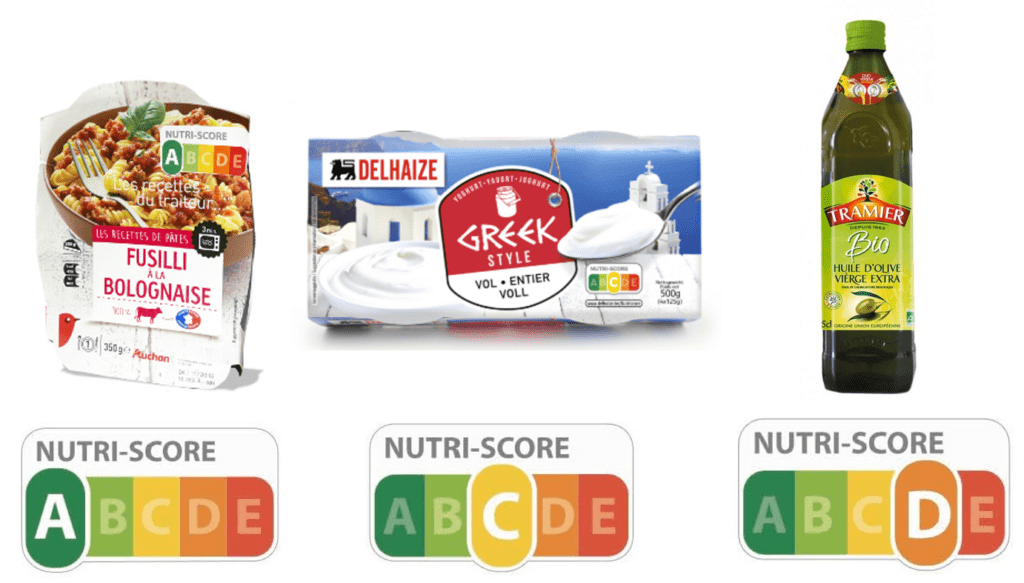Taxing unhealthy food is not the answer to UK’s obesity problem

UK consumers believe making healthy food more affordable will change their purchasing behaviour.
- Do we need (yet) another front-of-pack labelling system?
- Reformulating could boost profits
- Are our diets really that bad?
- Don’t make unhealthy food more expensive, make healthier food cheaper
- Supermarkets must take action against obesity
- ?Want to find out more about food and beverage consumer trends
Government plans to tackle the UK’s obesity crisis with tactics like taxing unhealthy foods and banning advertising may not work, new data shows.
In a survey of 1,000 working age UK consumers, we found lower support for the more heavy-handed measures outlined in the National Food Strategy.
Taxing unhealthy foods to make them more expensive was the least popular of the eight proposals, supported by 26% of Brits. Banning the sale of energy drinks is supported by 27% of people, while banning ads for unhealthy foods between 6pm and 9pm gets the thumbs up from less than a third (30.5%).

71% of Brits support making healthy food more affordable to tackle obesity
By contrast, making healthy food more affordable is supported by 71% of respondents, indicating that encouragements to eat healthily are likely to be more effective than deterrents. Gen Z (aged 18-25) are most opposed to prohibition-style measures, with only 14% supporting banning energy drinks and 20% in favour of banning junk food advertising.
Older Brits, on the other hand, are more on board with strong tactics; 44% of Boomers (aged 56-65) support the advertising ban and 59% want to see food manufacturers forced to reduce salt and sugar in their products.
When it comes to putting calorie information on restaurant menus, though, it’s the Millennials who most want to see this. 40% of respondents aged 26 to 40 are in support of the measure, which has been criticised for the negative impact it could have on people with eating disorders.
Do we need (yet) another front-of-pack labelling system?
Debate around the best type of front-of-pack nutrition labelling has been going on for more than a decade. Currently there’s a variety of different labelling being used on food packaging, including the Traffic Light system, Daily Guideline Amounts and Reference Intakes.
The government wants to see improved front-of-pack labelling – and the industry does too. Danone is one brand putting its weight behind Nutri-Score, a colour coded scale from A to E, each signalling the nutritional value of a product.

Each product is scored based on a scientific algorithm that considers the nutrients to reduce, like sugars, saturated fat and salt, and the nutrients to increase, such as fibre, protein, fruit, vegetables and nuts.
44% of Brits find front-of-pack nutrition labelling confusing
The Nutri-Score is said to be easier for consumers to understand and has been officially recommended by health authorities in France, Germany, Belgium, Netherlands, Luxembourg and Spain. But how confusing do Brits find existing nutrition labels?
We found that 39% of people believe they are able to make informed choices from looking at current front-of-pack labelling, while 44% find the labels confusing (including 14% who subsequently don’t bother to look at them). A further 17% don’t look at nutrition labels because they’re not interested – respondents in this camp are most likely to be Gen Z.
Most likely to be in favour of improving front-of-pack labelling are the Boomers, 44% of this demographic support the move. Gen Z are least bothered about it, with 27% showing support.
Reformulating could boost profits
While reformulating products to reduce salt and sugar content is desirable, it’s not always easy to do without a change in taste. Changing the way a popular product tastes is a big risk for manufacturers, but are consumers becoming more open-minded to reformulation in pursuit of healthier foods?
Encouragingly, 70% of Brits agree they’re willing to accept some change in taste (including 24% who strongly agree). Boomers show the most resistance to taste change, but 60% still say they’re willing to accept it.
What’s more, 56% of people say they’d be more likely to buy a product if it had been reformulated to make it healthier. Only 11% would be less likely to buy it. This suggests, as the government puts more pressure on brands to reformulate, it could have a positive impact on sales.
Are our diets really that bad?
Identified as a key risk factor for severe COVID-19, obesity has been thrown into the spotlight. But the problem had already reached crisis point way before the pandemic; there were more than a million hospital admissions for obesity-related treatment in England in 2019-2020.
Our research shows that there’s definitely room for improvement in British people’s diets. A quarter of the population are eating unhealthy meals most days/every day, and a further 26% eat unhealthy meals a few days a week – that’s more than half the population frequently eating badly.
58% of Gen Z eat unhealthy snacks daily or most days
Further underlining the issue is our love affair with unhealthy snacks; 41% of Brits eat them most days/every day and 28% eat them a few days a week. The biggest snackers are Gen Z, 58% of whom treat themselves daily or most days.
Dr Chris van Tulleken illustrated recently just how quickly a diet of ultra-processed food can have an impact on the body. In four weeks, he put on a stone, developed man-boobs, piles, anxiety and heartburn (even more disturbingly, an MRI showed his brain had re-wired itself).
But on the other side of the coin, Brits are certainly not adverse to cooking from scratch. Nearly 60% of us cook daily/most days, and a further 24% do it a few days a week. Even the youngest demographic show commitment to home cooking, which is a trend that brands should take note of.
Don’t make unhealthy food more expensive, make healthier food cheaper
It worked with cigarettes, but will making unhealthy food more expensive stop people from buying it? 62% of Brits agree taxing junk food is likely to affect their purchasing behaviour….but a larger 76% think healthy foods becoming more affordable would make an impact. This belief is seen across all the demographics.
Promotions for healthy foods are part of the PM’s anti-obesity plan and it appears this could really move the needle when it comes to reducing our waistlines. 84% of respondents agree that offers and promotions would encourage them to buy healthy foods, with Gen Z and Millennials particularly in favour.
84% of Brits say offers and promotions on healthy food would change their purchasing behaviour
Hoping to prove that young people want more affordable healthy food is SMASH, an app that provides 13 to 24-year-olds with money-off vouchers and promo codes on hundreds of healthy food products in the UK. Participating brands include Graze, Whitworths, Ugly Drinks, This, Meatless Farm and Deliciously Ella.
SMASH have even created a manifesto for F&B brands that encourages the use of pricing and promotions to increase take-up of “balanced options”. They hope to lobby the government to help drive down healthy food prices, and Unilever, Zizzi, Yo Sushi, Simply Cook have already signed up.
Supermarkets must take action against obesity
It’s not just manufacturers of unhealthy products that need to accept responsibility for the UK’s health crisis; it’s also the supermarkets that promote them. In fact, our data shows that consumers are more likely to agree that supermarkets must take action against obesity than food manufacturers. Nearly 76% of people believe supermarkets need to act, versus 67% who say the same about manufacturers.
A government study found that high-sugar foods and drinks are more likely to be promoted in-stores than healthier products, as well as being more deeply promoted. And these promotions really influence what we buy – putting soft drinks on an end of aisle display can increase sales by more than 50%.
It’s not just consumers who want supermarkets to change their ways; shareholders do too. Responsible investment charity ShareAction recently wrote to Morrisons chairman Andy Higginson, along with seven investors, calling on the supermarket to set stronger targets to increase sales of healthy products.
Regardless of what F&B brands might think about the government’s proposals for tackling obesity, what this ultimately shows is that it makes good business sense to help Brits be healthier. Now hear from some leading brands that agree the National Health Strategy represents a great opportunity.
Want to find out more about food and beverage consumer trends?
Tell us what you think of this article by leaving a comment on LinkedIn.
Or share it on:

